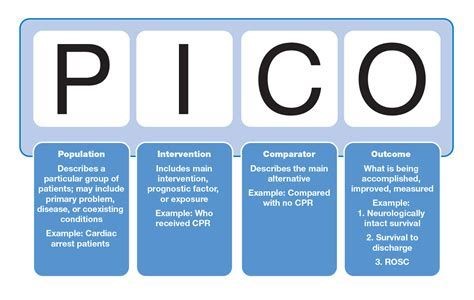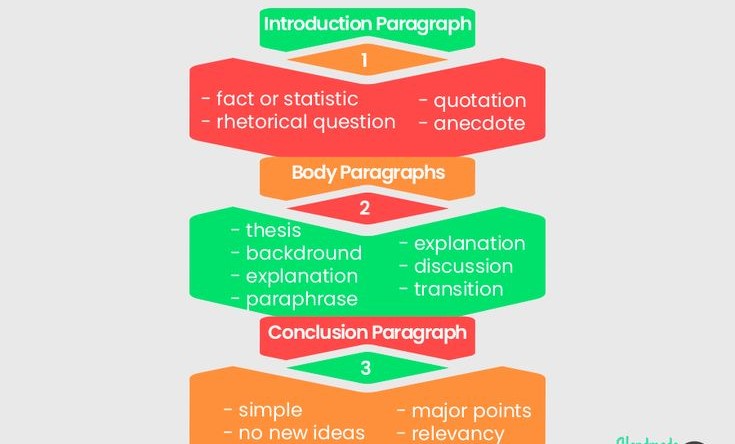
Table of Contents
Nursing theory paper writing is a crucial skill for aspiring and practicing nurses alike. It allows you to delve into the theoretical underpinnings of the profession, critically analyze different concepts, and contribute to the body of knowledge that shapes nursing practice. This comprehensive guide will equip you with the essential knowledge and tools to craft outstanding nursing theory papers, from initial brainstorming to final revisions.
Steps for Crafting an Engaging Nursing Theory Paper
1. Understanding the Importance of Nursing Theory
Before we dive into the practicalities of writing, it’s important to understand why a nursing theory paper is so significant. Nursing theories provide a framework for understanding and explaining nursing phenomena, guiding practice, and promoting the development of new knowledge. They offer a lens through which we can analyze complex patient situations, identify key factors influencing patient care, and develop evidence-based interventions.
Writing a nursing theory paper allows you to:
- Deepen your understanding of nursing theory: By engaging with specific theories and concepts, you gain a more nuanced understanding of their application to real-world nursing practice.
- Develop critical thinking skills: Evaluating different theories and their strengths and weaknesses fosters critical analysis and analytical thinking, crucial for informed decision-making in clinical settings.
- Contribute to the body of knowledge: Your research and insights can contribute to the ongoing development and refinement of nursing theory, shaping the future of the profession.
- Enhance your credibility as a nurse: Demonstrating your knowledge of nursing theory and your ability to analyze and apply it strengthens your professional standing and expertise.
2. Selecting a Suitable Topic
Choosing the right topic is the foundation of a successful nursing theory paper. Your selection should reflect your interests, align with your chosen course of study, and be feasible within the given timeframe. Here are some tips to guide your topic selection:
- Identify your area of interest: What specific aspects of nursing practice pique your curiosity? This could be a particular patient population, a specific nursing intervention, or a specific healthcare setting.
- Explore current nursing literature: Review recent publications in nursing journals to identify emerging trends and gaps in knowledge. This can spark ideas for your nursing theory paper topic.
- Consider your resources: Ensure you have access to relevant scholarly materials, including books, journal articles, and online databases, to support your research.
- Narrow down your focus: Avoid choosing overly broad topics. Instead, focus on a specific aspect of a larger concept within nursing theory.
3. Developing a Strong Research Question
Once you have a topic in mind, you need to formulate a clear and focused research question. This question will guide your research and serve as the central theme of your nursing theory paper. Consider the following:
- Make it specific and measurable: A well-defined research question provides a clear direction for your research and helps you gather relevant data.
- Ensure it is relevant to nursing theory: The question should be grounded in existing nursing theory and aim to contribute to the understanding of that specific theory.
- Use the PICO format: This framework can help you formulate a strong research question:
- P – Patient, problem, or population
- I – Intervention
- C – Comparison (if applicable)
- O – Outcome
- Reflect on the implications: Consider the potential impact of your findings on nursing practice, education, and research.

4. Conducting Thorough Research
Comprehensive research is the cornerstone of a compelling nursing theory paper. It involves a systematic process of gathering information from credible sources to support your arguments and build a strong foundation for your analysis. Here are some key steps to follow:
- Utilize scholarly databases: Access online databases like CINAHL, PubMed, and Medline to search for relevant journal articles, books, and other scholarly resources.
- Focus on peer-reviewed publications: Ensure the sources you utilize are rigorously reviewed and validated by experts in the field.
- Evaluate the credibility of sources: Consider the author’s qualifications, the journal’s reputation, and the date of publication to assess the reliability of the information.
- Take detailed notes: Organize your research findings effectively using note-taking techniques like summarizing key points, paraphrasing information, and using direct quotes with proper citations.
- Synthesize and analyze your findings: Integrate your research findings into a cohesive narrative, drawing connections between different sources and highlighting relevant themes and arguments.
5. Structuring Your Nursing Theory Paper
A well-organized structure is essential for a clear and impactful nursing theory paper. Following a standard academic structure ensures your paper is coherent, logical, and easy for your readers to follow. Here’s a typical structure for a nursing theory paper:
- Introduction:
- Background: Provide context for your chosen topic and explain its significance in nursing practice.
- Statement of the problem: Briefly summarize the issue or problem you are addressing in your paper.
- Purpose statement: Clearly state the purpose and objectives of your research.
- Research question: Formulate a clear and concise research question that guides your analysis.
- Brief overview of the paper: Briefly outline the key sections of your paper.
- Literature Review:
- Provide a comprehensive overview of relevant literature: Summarize existing research, theoretical frameworks, and key concepts related to your research question.
- Identify gaps in the literature: Highlight areas where further research is needed and where your paper aims to make a contribution.
- Analyze and synthesize findings: Connect and compare different perspectives, highlighting key themes and arguments.
- Theoretical Framework:
- Introduce the chosen theory: Clearly describe the main concepts, assumptions, and propositions of the theory you are using to analyze your topic.
- Explain the relevance of the theory: Explain how the chosen theory is relevant to your research question and how it contributes to understanding the issue at hand.
- Discuss the theory’s strengths and weaknesses: Critically evaluate the theory, highlighting its advantages and limitations in relation to your topic.
- Analysis:
- Apply the chosen theory to your topic: Use the theoretical framework to analyze the problem or issue you are addressing in your paper.
- Develop arguments and evidence: Support your claims with evidence from your research and the chosen theory.
- Present clear and concise arguments: Use logical reasoning and persuasive language to present your analysis.
- Discussion:
- Summarize key findings: Briefly reiterate the main points and arguments presented in your analysis.
- Explain the significance of your findings: Discuss the implications of your research for nursing practice, education, and research.
- Address limitations of your study: Acknowledge any limitations or biases that may have affected your findings.
- Suggest future directions for research: Identify areas where further investigation is needed to advance understanding of the chosen topic.
- Conclusion:
- Restate the purpose and research question: Remind the reader of the main focus of your paper.
- Summarize key findings: Briefly restate the main arguments and conclusions of your analysis.
- Highlight the implications of your findings: Discuss the practical and theoretical significance of your research.

6. Writing Style and Clarity
Clear and concise writing is essential for a successful nursing theory paper. Your writing should be accessible, engaging, and free from grammatical errors. Here are some tips to improve your writing style:
- Use a formal academic tone: Avoid using slang, jargon, or overly informal language.
- Write in the third person: Use objective language and avoid using personal pronouns like “I” or “we.”
- Be concise and precise: Avoid unnecessary words or phrases that do not add value to your argument.
- Use active voice whenever possible: This makes your writing more direct and engaging.
- Include transitions and flow: Use connecting words and phrases to ensure a smooth flow between paragraphs and sections.
- Proofread carefully: Before submitting your paper, proofread it thoroughly to identify and correct any grammatical errors, spelling mistakes, or inconsistencies.
7. Incorporating Citations and References
Proper citation and referencing are crucial for academic integrity and to acknowledge the work of others. Use a consistent citation style throughout your paper, adhering to the guidelines specified by your institution or publisher.
- Use a citation manager: Tools like Zotero, Mendeley, or EndNote can help you organize your citations and create a bibliography automatically.
- Provide accurate citations: Include all necessary information for each source, including author names, publication year, title, and source details.
- Maintain a consistent format: Follow the chosen citation style guide (e.g., APA, MLA, Chicago) consistently for all in-text citations and references.
- Avoid plagiarism: Always cite sources properly to avoid accusations of academic misconduct.
8. Revising and Editing
Revision and editing are essential steps in the nursing theory paper writing process. Take time to review your work critically and make necessary changes to ensure it meets the highest standards of academic writing.
- Read your paper aloud: This can help you identify any awkward phrasing or inconsistencies in your writing.
- Seek feedback from others: Ask colleagues, peers, or professors to review your paper and provide constructive feedback.
- Focus on clarity and coherence: Ensure your arguments are logical, well-supported, and presented in a clear and concise manner.
- Pay attention to formatting and style: Ensure your paper follows the formatting guidelines specified by your institution or publisher.
Examples of Compelling Nursing Theory Paper Topics
To further inspire your nursing theory paper writing journey, here are some examples of potential topics that incorporate different aspects of nursing theory:
- Applying the Theory of Human Caring to End-of-Life Care: Examine how the principles of Watson’s Theory of Human Caring can guide nursing interventions to provide compassionate and supportive care to patients approaching the end of life.
- Using the Health Belief Model to Promote Healthy Lifestyle Choices: Investigate how the Health Belief Model can be used to design effective health education programs that encourage patients to adopt healthier lifestyle habits.
- Analyzing the Impact of Nurse-Patient Communication on Patient Satisfaction: Explore how the principles of interpersonal communication theory influence patient satisfaction and adherence to treatment plans.
- Evaluating the Effectiveness of a Family-Centered Care Model in Pediatric Settings: Investigate how the concept of family-centered care, as outlined in theories like the Family Systems Theory, impacts the quality of care provided to children and their families.
- The Influence of Social Determinants of Health on Chronic Disease Management: Examine how social determinants of health, as defined by the Social Ecological Model, impact the management of chronic diseases and access to healthcare services.
- Exploring the Use of Technology in Nursing Practice Through the Lens of Technology Acceptance Model: Investigate how the Technology Acceptance Model can be used to understand nurses’ adoption and use of technology in various clinical settings.
- Analyzing the Ethical Implications of Telehealth Nursing: A Critical Examination using Ethical Frameworks: Evaluate the ethical implications of telehealth nursing practice using established ethical frameworks like the Belmont Report and the ethical principles of beneficence, nonmaleficence, autonomy, and justice.
- The Role of Leadership Theories in Promoting Quality Improvement in Nursing: Explore how different leadership theories, such as transformational leadership and servant leadership, influence the implementation of quality improvement initiatives in nursing practice.
Common Pitfalls in Writing a Nursing Theory Paper
Writing a nursing theory paper can be a challenging but rewarding experience. However, there are several common pitfalls that can hinder the quality and impact of your work. Here’s a breakdown of some common issues and how to avoid them:
1. Lack of Clear Focus and Purpose: A well-defined purpose is crucial for any nursing theory paper. Ensure your paper has a clear central question, a defined scope, and a specific theoretical framework. Without this, your paper may become scattered and lack direction.
2. Inadequate Literature Review: A strong literature review is essential to demonstrate your understanding of the chosen theory and its relevance in nursing practice. Nursing theory papers require thorough research into relevant studies, theoretical concepts, and existing applications. Avoid relying solely on secondary sources and ensure your review is comprehensive and up-to-date.

3. Weak Theoretical Framework: The choice of theoretical framework is critical in a nursing theory paper. You need to clearly define the chosen theory, its assumptions, and its key concepts. Avoid simply stating the theory without elaborating on its relevance to your research question.
4. Lack of Critical Analysis: A nursing theory paper requires more than just summarizing existing knowledge. You must analyze the chosen theory, its strengths and limitations. Besides, your nursing theory paper should also show the potential applications of your theory in nursing practice. Engage with the theory critically, exploring its implications and its relationship with other relevant theories.
5. Poor Structure and Organization: A clear and logical structure is crucial for a well-written nursing theory paper. Use headings, subheadings, and clear transitions to guide the reader through your argument. Avoid lengthy paragraphs and ensure each section contributes to the overall purpose of the paper. Short paragraphs will improve the readability of your paper, making it easier for readers to understand the information.
6. Weak Conclusion: The conclusion of your nursing theory paper should summarize your key findings, reiterate your central argument, and highlight the significance of your work. Avoid introducing new information or simply restating the introduction. Like the introduction, the conclusion should leave your readers with something to think about or look forward to.
7. Lack of Clarity and Conciseness: Writing should be clear, concise, and accessible to the intended audience. Avoid jargon and complex language, and ensure your writing is free from grammatical errors.
8. Inadequate Support for Claims: All claims made in your nursing theory paper need to be supported with evidence from the literature, your analysis, and, if applicable, your own research findings. Ensure your arguments are logical and well-supported.
By carefully considering these common pitfalls and taking proactive steps to avoid them, you can significantly improve the quality of your nursing theory paper and effectively communicate your insights and understanding of the chosen theory.
Final Tips for Success
As you embark on your nursing theory paper writing journey, remember these final tips for achieving excellence:
- Start early: Avoid procrastination and dedicate sufficient time for each stage of the writing process, from topic selection to final revisions.
- Stay organized: Maintain a clear file structure for your research materials, notes, and drafts to prevent confusion and streamline your workflow.
- Utilize available resources: Don’t hesitate to seek guidance from your professors, mentors, or librarians. They can provide valuable insights, feedback, and support.
- Don’t be afraid to ask for help: Reach out to writing centers or tutoring services if you need assistance with writing style, grammar, or organization.
- Celebrate your achievements: Acknowledge your hard work and effort, and take pride in the knowledge and skills you gain through this journey.
Remember, nursing theory paper writing is a process of discovery, critical analysis, and creative thinking. By embracing these principles and following the steps outlined in this guide, you can develop the skills to craft stellar nursing theory papers that contribute to the advancement of the profession. Your commitment to this endeavor will not only enhance your academic journey but also empower you to become a more knowledgeable, reflective, and effective nurse.
Get Professional Nursing Theory Paper Writing Help
At Nursing Papers, we are the experts in academic writing that you should always engage to write your nursing assignments. We provide customized nursing theory paper writing help for undergraduate, Degree, Master’s and Doctorate courses. Our writers can assist you with all types of nursing assignments including research papers, essays, case studies and dissertations.







